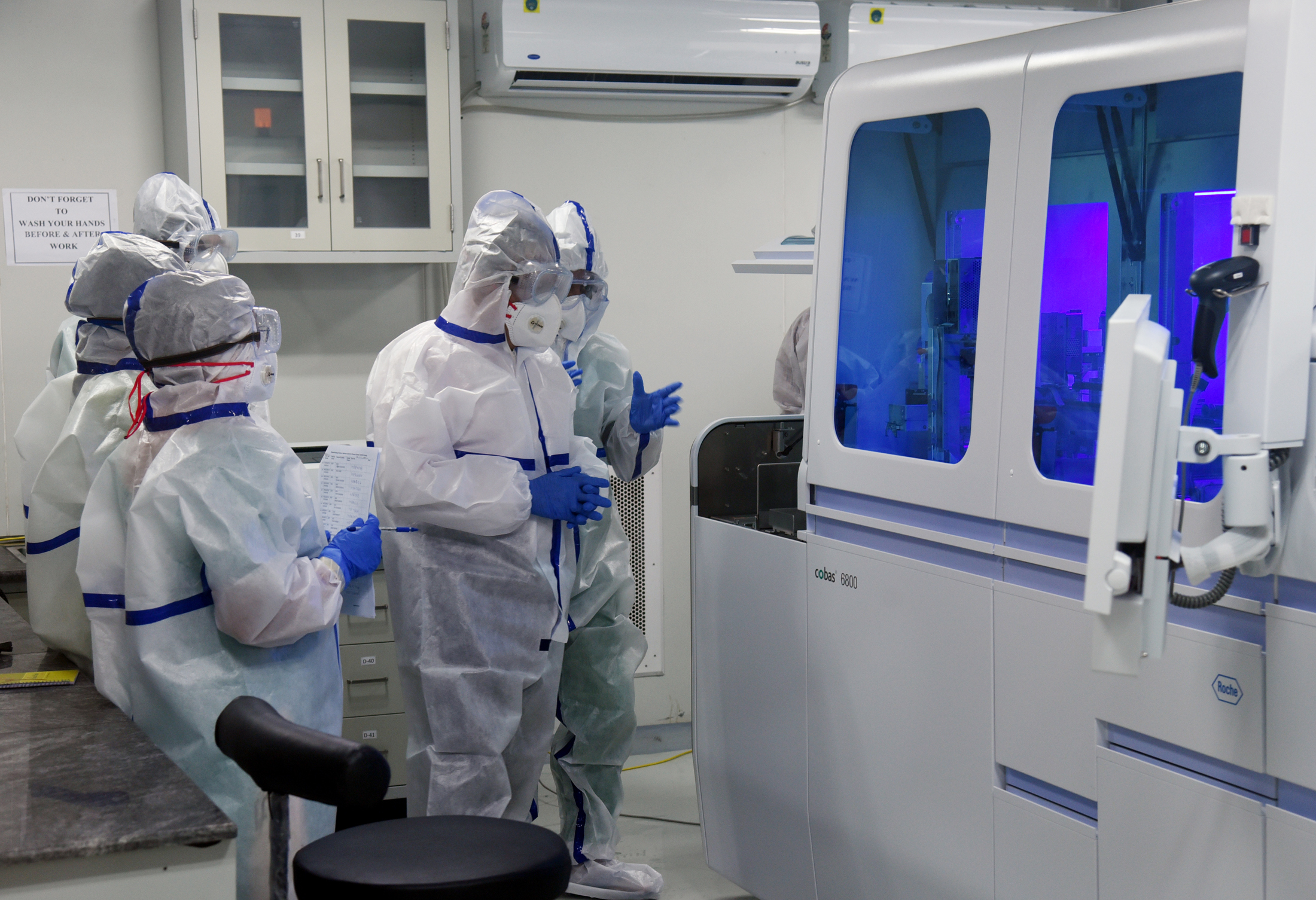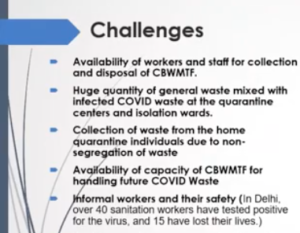
National Centre for Disease Control (NCDC), Delhi
 This was an event worth attending. Focussed on the challenges and way forward in COVID-19 waste management, the hour-long online panel discussion organized by the Center for Environment, Climate Change and Sustainable Development (CECCSD), Impact and Policy Research Institute (IMPRI) saw a healthy debate on waste management policy and practice. In case you missed it, here are the highlights:
This was an event worth attending. Focussed on the challenges and way forward in COVID-19 waste management, the hour-long online panel discussion organized by the Center for Environment, Climate Change and Sustainable Development (CECCSD), Impact and Policy Research Institute (IMPRI) saw a healthy debate on waste management policy and practice. In case you missed it, here are the highlights:
Mr Sameer Unhale who, until recently, was posted in the Thane Municipal Corporation before being transferred to Ulhasnagar as Municipal Commissioner, emphasized that solid waste management in pandemic times requires the support of each citizen. “If household waste is not properly segregated and gets mixed with infected COVID waste, it will have disastrous consequences. The importance of segregation needs to be communicated to every citizen now, more than ever before,” said Mr Unhale.
Mr Unhale asserted that waste is not the sole responsibility of municipalities – community participation is equally important. Engaging every citizen and explaining to them their role in containing this epidemic is essential. In order to reach out to citizens and sensitize them about waste segregation, a lot more effort is required through active community engagement.
Municipal workers cannot be treated as “sanitation slaves” to clean the garbage citizens are generating, the senior official said. “People’s mindset has to change and they must take responsibility for the waste they generate. Post-Swacch Bharat Abhiyan there is a tremendous investment in SWM but more collaboration between communities, municipalities, and the private sector is required to make a change at the ground level.”

There are reports that suspected COVID positive patients are mixing infected waste with the rest of their household waste and not segregating it special yellow bags, as specified in the CPCB guidelines. Waste management expert Swati Singh Sambyal highlighted this and other challenges associated with waste management during the pandemic during her presentation.
Ms Sambyal said the pandemic was an opportunity to reinvent waste management systems in India. Among other measures, she emphasized the need for investment in wet and dry waste management infrastructure of cities including material recovery facilities (MRFs), sorting centers and storing centers. “Municipalities need to set up robust waste management systems. Also, linkages between MSW and biomedical waste collection and transfer to treatment facilities and processing have to be identified. This will keep sanitation workers safe,” Ms Sambyal said.
Professor Brijesh Dubey of IIT Kharagpur highlighted the need to move from manual to automated systems of waste management. “There is a tremendous opportunity for entrepreneurship, to develop new technologies that can contribute to decentralized waste management. But, then again, no technology will succeed if waste is not properly segregated at source,” Professor Dubey said.
The session was moderated by Dr Keith Alverson – Director, International Environmental Technology Centre, United Nations Environment Programme (UNEP), Japan.
You can watch the entire video here.
Picture Credit: National Centre for Disease Control, Press Information Bureau of India



